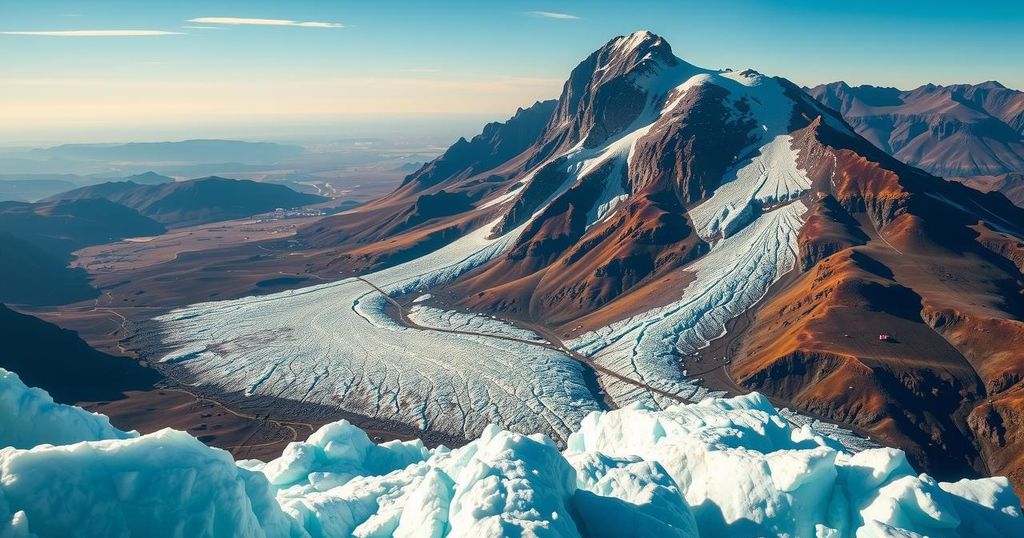Climate change
’ S MOUNTAINS, AFRICA, BELGIUM, BRUSSELS, CLIMATE CHANGE, EUROPE, FAMILY LEGACY, JOHN SEKAJUGO, KILEMBE, LEADERSHIP, MATT, MATTHIEU KERVYN, MOON UNIVERSITY, MOUNTAINS OF THE MOON UNIVERSITY, NYAMWAMBA, RECOVERY, RWENZORI, RWENZORI MOUNTAINS, SEKAJUGO, SOCIETY, SYLVESTER WALYUBA, UGANDA, VRIJE UNIVERSITY
Marcus Li
0 Comments
Melting Rwenzori Glacier: A Threat to Local Communities and Cultural Heritage
The Rwenzori mountains’ glacier is rapidly melting, threatening local communities relying on it for fresh water. This melting, exacerbated by human activities, has led to increased flooding and cultural disruption. Efforts to implement flood monitoring and revive indigenous practices are crucial to ensure the sustainability of these communities and their environment as they face ongoing climate challenges.
The Rwenzori mountains in Uganda, home to one of Africa’s last glaciers, are experiencing critical melting. The glacier poses a threat to local communities depending on the water supply for agriculture, livestock, and fishing. Increased precipitation has led to frequent and devastating floods, altering the environment and the lives of residents. In response, scientists and local volunteers are implementing flood monitoring systems to predict water flows and mitigate the impact of these extreme weather events.
The glacier has drastically shrunk from 7.5 square kilometers in 1906 to under one square kilometer today. Its melting directly disrupts the hydrological cycles that provide vital water to millions, while deforestation and intensified agriculture compound the problem. Community members, such as farmer Zephanas Masereka, have suffered significant losses due to landslides; with damages estimated in millions of Ugandan shillings.
Culturally, the Rwenzori mountains hold profound significance for local ethnic groups, representing more than just a geographical feature, but a place of spirituality and knowledge. Traditional practices that once safeguarded the ecosystem are fading, as communities shift towards modern agricultural practices and industrial developments, exacerbating environmental degradation.
Organizations are now working to revive indigenous knowledge and promote sustainable practices, such as agroforestry. Experts like Benon Bwalhuma emphasize the importance of indigenous trees, which have strong roots to manage floods and protect the soil. Community members have begun to adopt these techniques to combat soil erosion and enhance land productivity despite changing climatic conditions.
As climate change poses continuing threats, the struggle to preserve the glaciers and the wisdom of the indigenous cultures intertwined with them becomes crucial. Effective solutions lie in a blend of modern science and traditional ecological practices, creating a path towards resilience for the communities affected by this environmental crisis.
The Rwenzori mountains face significant challenges due to glacier melting, impacting local water supplies and increasing the frequency of floods. Traditional practices that once protected the environment are fading, necessitating a return to indigenous knowledge and sustainable land management techniques. Efforts by scientists and local communities to create monitoring systems and revive traditional practices are vital for preserving both the ecological and cultural heritage of the region. A combined approach integrating scientific research with community-led initiatives is essential for fostering resilience against ongoing environmental changes.
Original Source: www.telegraph.co.uk




Post Comment